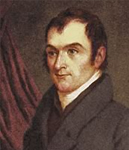It is natural to man, from his earliest infancy, to cry for relief when in danger or distress, if he supposes that any one able to relieve him is within hearing of his cries. Every man then who feels his own dependence upon God, and his need of blessings which God only can bestow, will pray to Him. He will feel that prayer is not only his duty, but his highest privilege; a privilege of which he would not consent to be deprived, though confinement in a den of lions were to be the consequence of its exercise. The man, then, who refuses, or neglects to pray, who regards prayer not as a privilege, but as a wearisome and needless task, practically says, in the most unequivocal manner, I am not dependent on God; I want nothing that He can give; and therefore I will not come to Him, nor ask any favor at His hands. I will not ask Him to crown my exertions with success, for I am able, and determined, to be the architect of my own fortune. I will not ask Him to instruct or guide me, for I am competent to be my own instructor and guide. I will not ask Him to strengthen and support me, for I am strong in the vigor and resources of my own mind. I will not request His protection, for I am able to protect myself. I will not implore His pardoning mercy nor His sanctifying grace, for I need, I desire, neither the one nor the other. I will not ask His presence and aid in the hour of death, for I can meet and grapple, unsupported, with the king of terrors, and enter, undaunted and alone, any unknown world into which he may usher me. Such is the language of all who neglect prayer.
- Home
- About
- Archives
- Book Reviews
- Categories
- Affliction
- Antinomianism
- Arminianism
- Baptism
- Bible Characters
- Biography
- Book Reviews
- Cessationism
- Christ
- Christian Life
- Church
- College
- Contemporary Issues
- Creation
- Culture
- Death
- Doctrinal Christianity
- Eschatology
- Evangelism
- Exposition LBC 1689
- Family
- God
- Gospel
- History
- Idolatry
- Internet
- John Calvin
- Law
- Lord’s Supper
- Love
- Man
- Meditations
- Music
- New Year
- Pastoral Theology
- Prayer
- Preaching
- Puritans
- Reformed Faith
- Repentance
- Roman Catholicism
- Salvation
- Satan
- Scripture
- Service
- Sin
- Thanksgiving
- Theology
- Videos
- Worship
- Contributors

